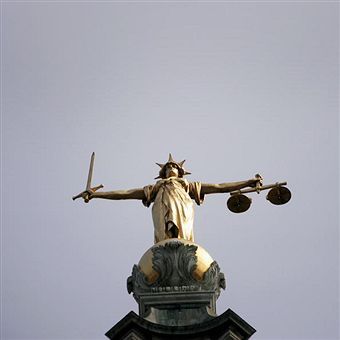 The Court of Appeal made a momentous judgment this afternoon. It was hearing the appeal of Rangzieb Ahmed, the first man to be convicted on terror-related charges
in this country, for which he is serving 10 years. Ahmed’s appeal was based on the allegation that British security services had been complicit in his torture and that the evidence for his
conviction, gained by Pakistan’s ISI, was obtained by a series of extreme measures culminating in the slow removal of his finger nails.
The Court of Appeal made a momentous judgment this afternoon. It was hearing the appeal of Rangzieb Ahmed, the first man to be convicted on terror-related charges
in this country, for which he is serving 10 years. Ahmed’s appeal was based on the allegation that British security services had been complicit in his torture and that the evidence for his
conviction, gained by Pakistan’s ISI, was obtained by a series of extreme measures culminating in the slow removal of his finger nails.
The appeal judges rejected Ahmed’s suit, saying that there was no evidence that his nails had been pulled out or that British officers ordered beatings. Ahmed’s claims had been proved ‘not to have occurred’. The panel withheld the right to a further appeal on the basis of those facts. Those newspapers, persons or organisations that propagate Ahmed’s false factual claims to allege British intelligence’s complicity in torture should now reasonably desist.
The judgment went much further. It said:
‘We should record that it was not possible to treat as an established law the concept of complicity in torture, which is an essential plank of the appellant’s case.’
This is a seminal decision (and a rarity in that I imagine it will not remotely inconvenience the government). It means that passive receipt of intelligence perhaps gained through torture is not the same as complicity in torture. This is important because the security services cannot defend themselves against the allegations of Binyam Mohammed and other former detainees. More complex forms of proof will now be needed to establish complicity, which will have far-reaching consequences for the ongoing Gibson inquiry into complicity in torture.






Comments